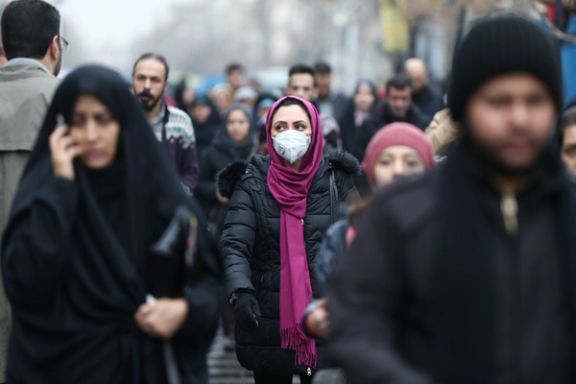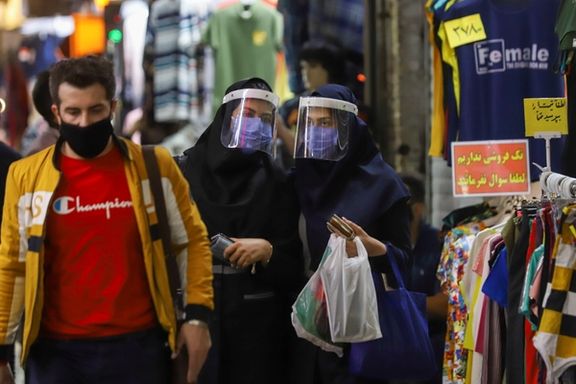Iran's Covid Deaths Nearly Double Official Figures: Former Official

A former official in Iran's Covid Taskforce says the country’s Covid deaths were nearly twice the figures authorities reported for the first two years of the pandemic.

A former official in Iran's Covid Taskforce says the country’s Covid deaths were nearly twice the figures authorities reported for the first two years of the pandemic.
Speaking to the reformist Etemad newspaper, Ali-Akbar Haghdoust, head of the Covid Taskforce’s epidemiology committee, said estimates based on some studies, including a study by Ardabil Medical Sciences University published in early March 2023, shows that 240,390 Iranians died from Covid between February 2020 and February 2022 against the official figure of 136,166.
According to Haghdoust, other studies have shown that real number of deaths from Covid ranged from 45.2 to 49.4 percent higher than official figures.
“It does not entail much negative consequences to say this today, but many experts and specialists in the field of health and even other fields such as economics and politics, who criticized the government for untrue reports of Covid infections and deaths between 2020 and 2022 were harshly treated, because questioning the official figures proved health authorities were hiding the facts,” he said.
Iran was the second country in the world after China to declare an epidemic in February 2020 and reported nearly 145,000 Covid deaths, the Middle East’s highest official level, and 7.5 million confirmed cases.
From the early days, some health specialists and others alleged that Iran’s reported deaths were much lower than the real figures. Based on statistics like burials in Tehran, some suggested that the true number of deaths could be as high as 500,000.

Researchers tracking the pandemic globally have noted that “excess deaths” reflect many factors, including those indirectly due to Covid including a stretched health system, but allegations abounded at the time that Iranian authorities were deliberately under-reporting Covid deaths.
A study published by the Lancet in March 2022 suggested that in the first two years of the pandemic − up to December 31, 2022 −there were globally 18 million excess deaths, with only 6 million officially attributed to Covid.
Many Iranians also blamed Supreme Leader Ali Khamenei for putting a ban on importing vaccines developed in the United States and Britain in January 2021, for causing many more Covid deaths than if vaccination efforts of the government of President Hassan Rouhani had not been delayed for months.
Iran's Supreme Leader argued that these vaccines had to be avoided because these countries could be testing their vaccines on other nations and urged developing vaccines domestically.
Khamenei's ban was supported by hardliners who following his lead said Iranians could not be used as "guinea pigs" to test Western vaccines. The Rouhani administration reluctantly backed off and looked for joint production with Cuba, purchases from several countries including China, Russia, and India, and using homegrown vaccines as they would become available.
At the time, the US-German Pfizer, US-made Moderna and the British-made AstraZeneca were the only vaccines approved internationally, although Bahrain and the United Arab Emirates had already approved the use of China’s Sinopharm which was later imported by Iran too. Sinopharm accounted for over 80 percent and AstraZeneca for around 10 percent of all vaccinations in Iran.
Vaccination picked up when hardliner Ebrahim Raisi assumed the presidency in August 2021 and vaccines that had been ordered began to arrive. In September 2021 only around 14 percent of Iranian had been vaccinated.
Some of the country’s vaccine producers, including the state-owned Barekat Foundation, received hundreds of millions of dollars to start their vaccine development program from scratch despite having had no experience in the field. None of the several vaccines developed domestically was ever approved by the World Health Organization.
Homegrown Covid vaccine factories, however, began shutting down in mid 2022 for lack of demand as many who were vaccinated with foreign vaccines refused to get homegrown ones as boosters.